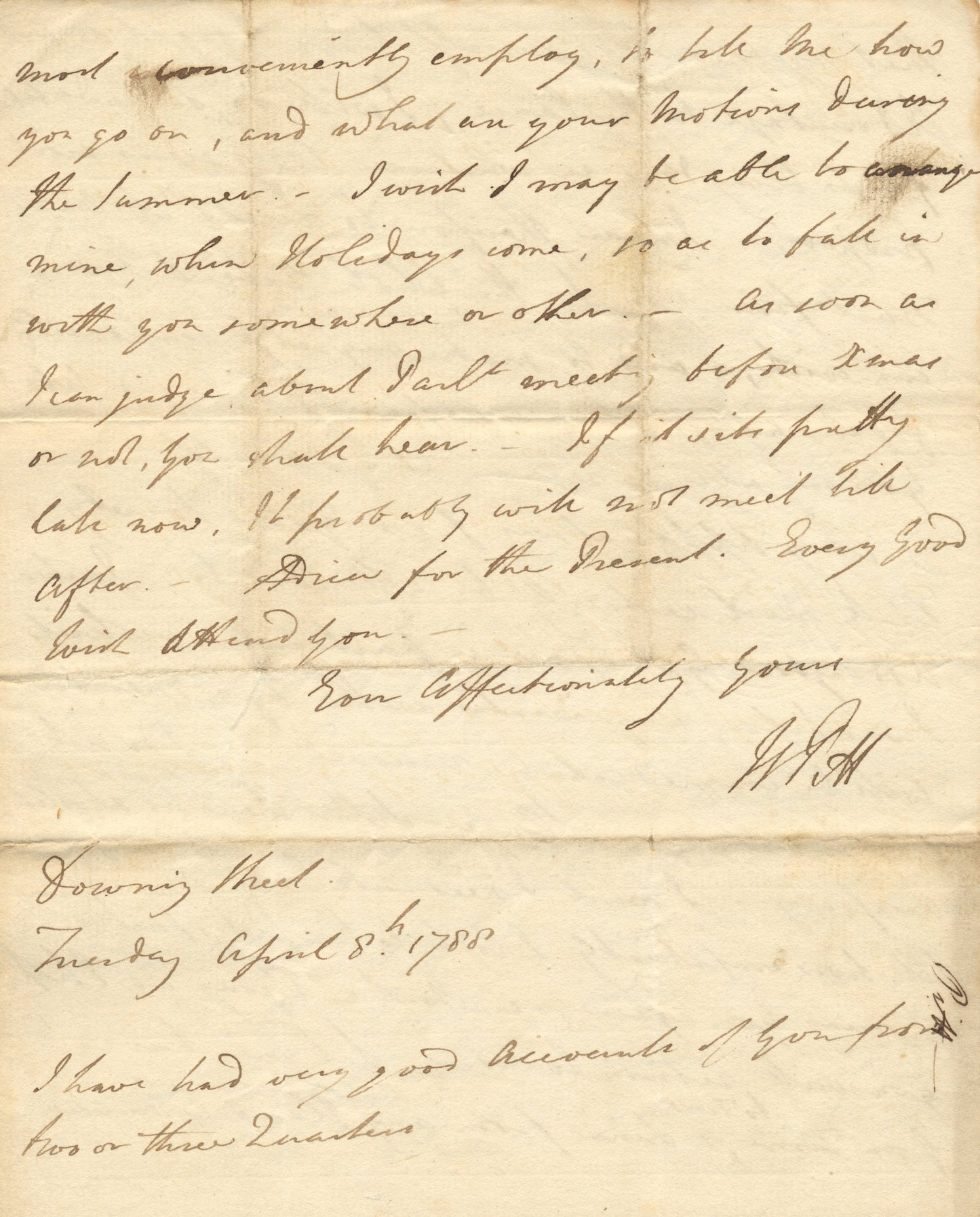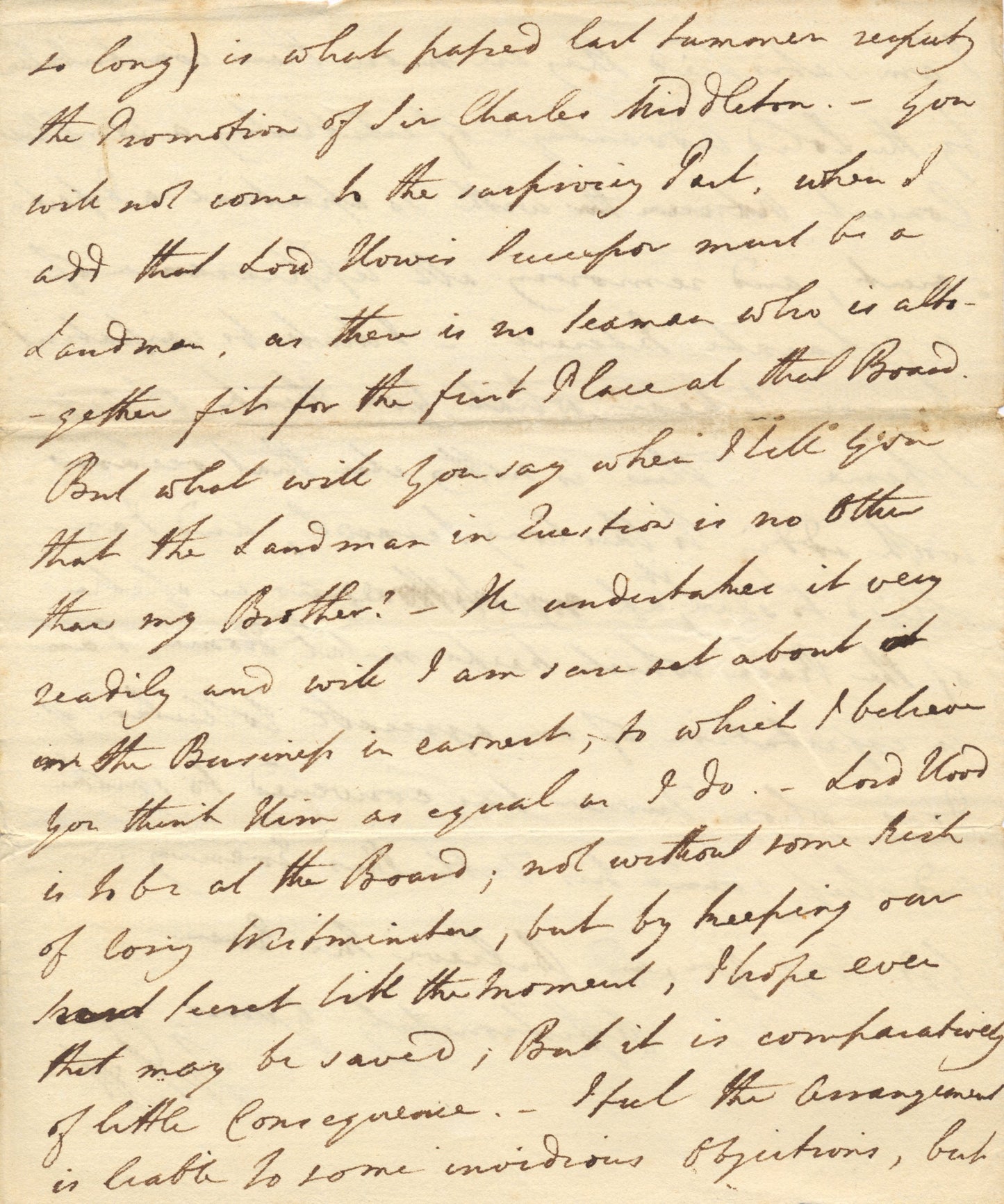Specs Fine Books
1782 WILLIAM WILBERFORCE. Historically Important Archive of 74pp of William Pitt Letters to William on Christianity, Slavery, and Politics!
1782 WILLIAM WILBERFORCE. Historically Important Archive of 74pp of William Pitt Letters to William on Christianity, Slavery, and Politics!
Couldn't load pickup availability
A truly unique opportunity for the institution of discerning personal collector. It would be difficult to overestimate the value of these documents as a core collection related to William Wilberforce and/or the abolition of the slave trade.
The very letters he read as he contemplated the impact of his new Christian faith on his engagement with the political world!
Really, it is probably impossible to fully understand William Wilberforce without having some sense of the unique relationship he shared with William Pitt the Younger [1759-1806]. Long-time friends, before Wilberforce's evangelical conversion, it was Pitt who urged Wilberforce to resist the call to the contemplative life or to the life of a clergyman and to use his sacred call for to "bring heaven to earth" in ways that were structural, permanent, and impacted the whole of society. Pitt helped him articulate a sacred duty to the public sphere.
The relationship is poignantly told in the film Amazing Grace, and accessibly written in Stephen Tompkins' biography; or, for those wanting a larger read, Eric Metaxas.
The present letters, totaling twenty three, and including 74 total pages, are all addressed from William Pitt to William Wilberforce and inclusive of some of the pivotal correspondence regarding Wilberforce's faith, his call to continue political engagement, and more.
The 74 pages of manuscript include 18 in larger 4to format 5 in smaller 8vo format and are dated from July 31, 1782 to August 14th, 1800. Additionally, some of the letters are docketed by Wilberforce in his own hand.
As an example of the critical material included, the letter of October 2nd, 1785, reads in part:
". . . I am indeed too deeply interested in whatever concerns you, not to be very sensibly affected by what has the appearance of a new Era in your Life, and so important in its consequences . . . I will not disguise to you that few things could go nearer my heart than to find myself differing from you essentially on any great principle. I trust and believe that it is a circumstance which can hardly occur.. They are sentiments engraved in my heart, and will never be effaced or weakened . . . You will not suspect me of thinking lightly of any moral or religious motives which guide you. But forgive me if I cannot help expressing my fears that you are nevertheless deluding yourself into principles which have but too much tendency to counteract your own object, and to render your Virtues and your Talents useless both to yourself and Mankind . . . But why then this preparation of solitude, which can hardly avoid tincturing the mind either with melancholy or superstition? If a Christian may act in the several relations of life, must he seclude himself from them all to become so . . . You do not explain either the degree or the duration of the retirement which you have prescribed to yourself . . ."
Or this, on December 19th, 1785, " . . . as much as I wish you to bask on, under an Italian sun, I am perhaps likely to be the instrument of snatching you from your present paradise, and hurrying you back to "The Rank Vapours of this Sin-Worn World."
The issue of the Slave Trade and its connectivity to Wilberforce's personal efforts, now as a person of faith, are at the forefront in letters dating to both April and June of 1788.
" . . . As to the Slave Trade, I wish on every account it should come forward in your hands rather than any other. But that in the present year is impracticable; and I only hope you will resolve to dismiss it as much as possible from your mind. It is both the rightest and wisest thing you can do. If it will contribute to setting you at ease, that I should personally bring it forward (supposing circumstances will admit of it being brought forward this session) your wish will decide… In one word however be assured, that I will continue to give the business constant attention, and do every thing to forward it . . . The business respecting the Slave Trade meets just now with some rub in the House of Lords.. I wonder how any Human being can resist . . . There seems not a shadow of doubt as to the conduct of the House of Commons next year, and I think with good management the difficulties in the other House may be got over . . . "
Again in Spring 1789, " . . . to have the day for the Slave Trade postponed, Grenville and I have formed a project, of reducing the case into a string of resolutions. The more we consider the Case, the more irresistible it is in all its parts."
Exceptional content throughout the letters. A true treasure.
Some expected handling, but all crisp, complete, and legible.
Financing available upon request.
Share


































